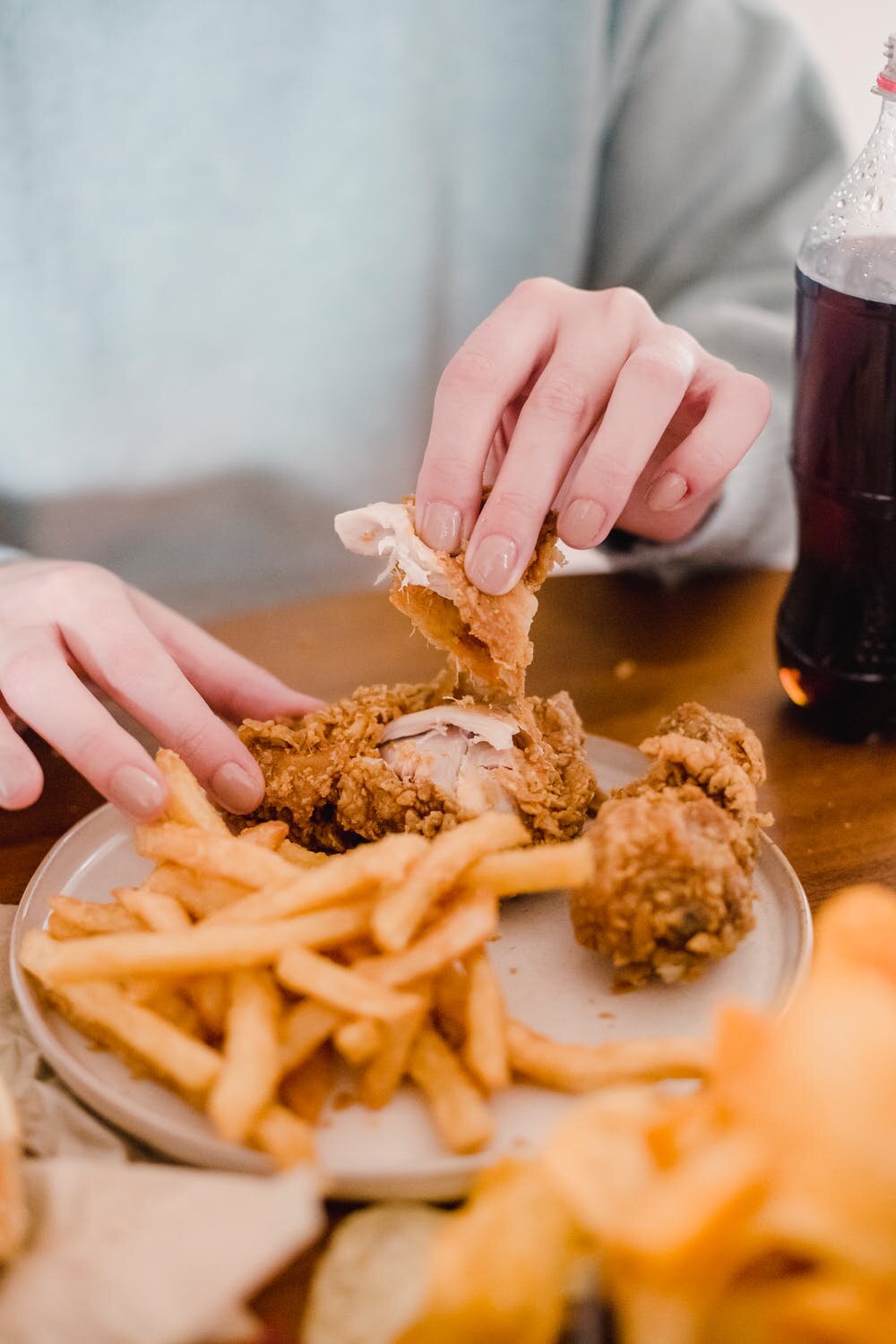Emotional eating – why we turn to food for comfort
Understanding how food and feelings relate
Text: Shannon T
Do you live to eat or eat to live? For those of us who identify with the former, food is more than just sustenance. Chowing down on our favourite foods can be extremely satisfying, leaving us feeling literally fulfilled for the rest of the day. On bad days, it also helps in relieving our negative emotions from stress, to sadness and loneliness — this connection between food and feelings is known as emotional eating. Now more than ever, emotional eating is becoming increasingly common as more of us turn to food to mitigate the stress and anxiety incurred from this ongoing pandemic.
To better understand this process, we speak to two professionals, Elizabeth Ho, a psychologist and certified traumatologist at Resilienz, as well as Amanda Lim, Consulting Director of Peak Health Consultancy and Co-Founder of The Butterfly Project. Read on to find out why exactly some of us emotional eat, how to understand it and how you can keep it under control if you find yourself experiencing a serious bout of emotional eating.
What is emotional eating?
Amanda: Emotional eating at its core is simple — it is the act of connecting food to feelings. Emotional eating is not always detrimental - for example, eating something indulgent to celebrate the joy of one's birthday shouldn't be seen as an "issue" or "problem".
Elizabeth: Some people react or cope with stressful feelings by emotional eating, even in the absence of physical hunger. Emotional eating, also known as stress eating, refers to craving for foods high in carbohydrate and calorie but low in nutritional value (often known as “comfort foods”), like ice cream, chocolate, cookies, chips, fries. The primary difference between binge eating (compulsive and recurrent episodes of overeating) and emotional eating is in the amount of food consumed.
Is emotional eating bad?
Amanda: The actual problem is when the emotional connection leads to unwanted or uncontrollable eating patterns, such as when sadness or loneliness leads one to consume a pint of ice cream, or when a fight with a significant other results in choosing a self-harming portion size over a healthy one.
Also, the reason emotional eating gets a bad rap is because it shares lots of similarities with substance abuse. When food becomes more than fuel - meaning, it becomes a coping mechanism, therapeutic crutch, or constant reward or punishment - emotional eating has crossed the line into scary territory.
Why do we emotional eat?
Amanda: The most common emotions associated with eating are boredom, anger, sadness, loneliness, grief, and anxiety. Second to these more "negative" emotions are those that, without attachment to food, are actually seen as quite "positive" such as self-soothing, reward, connection seeking, and celebration. It is important to remember that everyone - every human, everywhere - eats emotionally from time to time. The act of emotional eating is not a failure or a secret shame. Being mindful about one's own emotional eating triggers, habits, and patterns, however, is what sets apart those who do it occasionally from those who do it chronically - and the latter is what produces long-term struggles with food.
Elizabeth: There are people who do not have clinical depression who engage in emotional eating as this is a response to momentary or chronic stress. People who connect food with comfort, positive feelings, or other reasons than sustenance, are more prone to emotional eating. They may overeat to fill an emotional void and engage in mindless eating.
Emotional eating can also occur in people who have experienced food scarcity, or in situations where food was used as a reward/ punishment or as an emotional intimacy substitute. Whilst this behaviour is common, however, if left untreated or addressed, it can lead to obesity and difficulty in maintaining a heathy diet.
How do we know when we are emotional eating?
Elizabeth: Here are some symptoms of emotional eating that you should look out for if you suspect that you may be emotional eating:
Sudden and intense feelings of hunger (as opposed to gradual physical need of fuel for body)
Craving and seeking out of junk foods rather than balanced meals
Urge to eat is usually preceded by stressful or uncomfortable emotions (e.g. boredom, sadness, anger, frustration)
Sufferer often feels a lack of control in controlling their cravings and tend to feel guilty afterwards
How should we approach emotional eating?
Amanda: Precision Nutrition coaching suggests three main strategies when it comes to handling emotional eating:
Go ahead and do it, giving yourself permission to indulge but also mindfully observe.
Create a "nourishment menu" of alternative actions that can help you navigate away from foods and situations that trigger you.
Have self-compassion for the times you were unable to do 1 or 2.
I also advise clients to use a method developed by nutritionist Carly Pollack in her book Feed Your Soul, which is to replace strict black-and-white rules with "loving boundaries" around food. Examples include not keeping potato chips in the house if you know you face difficulty controlling your portions or to stop, breathe, and express your intent ("I am feeling bored right now, so I'd like to eat something that feels fun or entertaining") before reaching for a snack - a strategy I call it "name it to tame it".
In short, some level of emotional eating is common among even the most balanced nutritional devotees - and it's nothing to be ashamed of. What's important is that when emotional eating threatens to derail one's mental health, weight loss progress, personal relationships, or body image, it is addressed with as much intention and mindfulness as any other issue - not left to spiral out of control until it becomes truly disordered eating.
Elizabeth: Being aware that an individual has an issue with eating is the first step to acknowledging the problem and getting help. Teaching the individual healthier ways to view food and develop better eating habits (e.g. mindful eating) can provide the individual a good framework to overcome emotional eating. They will also need to identify and recognise their triggers for engaging in this behaviour, and learn to use other more appropriate ways to prevent and alleviate stress.
Reducing stressors, viewing food as sustenance rather than as a way to solve problems, and using constructive strategies to handle emotions can help to prevent emotional eating.
Psychologist and certified traumatologist Elizabeth Ho can be contacted here.
Amanda Lim, Consulting Director of Peak Health Consultancy and Co-Founder of The Butterfly Project can be reached here.














